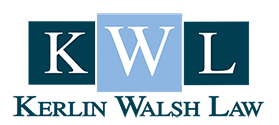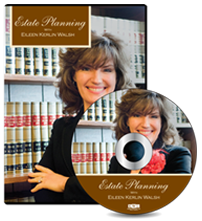Answers To Common Questions On Wills & Trusts
March, 2016.
 Hello dear readers. Today we will review common questions on Wills and Trusts. As I speak to viewers of my TV show, audiences at my seminars, and clients in my office, the same questions pop up over and over. We will review those questions today as a reminder for our regular readers and a primer for our new readers. Just what does “Estate Planning” mean?
Hello dear readers. Today we will review common questions on Wills and Trusts. As I speak to viewers of my TV show, audiences at my seminars, and clients in my office, the same questions pop up over and over. We will review those questions today as a reminder for our regular readers and a primer for our new readers. Just what does “Estate Planning” mean?
- What is my “Estate”?
Your “Estate” is everything you own. It includes your home and any vacation or income property. Your Estate includes your bank accounts, CDs, credit union accounts, stocks and bonds, brokerage accounts and retirement accounts. It also includes your business interests, life insurance proceeds, your share of joint accounts plus any money owed to you. Finally, your Estate includes your personal effects such as jewelry, medals, crystal, art and the contents of your home.
- What is the value of my Estate?
The value of your Estate is the fair market value of all those accounts and property, minus any debts, such as a car loan, credit card debt, student loans or a mortgage on your home.
- What is “Estate Planning”?
Now that we know what our Estate is, “Estate Planning” is the strategic process we undertake to plan for two critical points in the future; if we become ill and after we pass. Estate Planning also involves the management of our person and any minor children or disabled adults we care for.It is vital to understand that Estate Planning is a two-fold process. The first part is the strategy; the knowledge and experience to craft the best plan for care and assets. The best plan will save the Estate money, minimize taxes and protect assets. The second part of the process is the physical plan, the documents to carry out the strategy.
- Who needs an Estate Plan?
Everyone does; whether they are young, old, married, single, have children or no children, are sick or in health. Everyone should have a plan in place for when they become ill or pass away. If you fail to plan, state law and judges will determine who manages your assets and who gets them.
- What is a “good” Estate Plan?
After examination of your assets and life situation, we design a strategy to minimize taxes, avoid creditors, avoid probate and protect your family. Then we get appropriate documents in place. A typical Estate Plan includes: a customized Trust, a Will, a Financial Power of Attorney, a Health Care Power of Attorney, HIPAA instructions, end of life instructions and updated asset information. - What is the difference between a Will and a Living Trust?
This is our most commonly asked question. A Will only becomes effective after death. A Living Trust plans for lifetime, as well as after death. A Will and Trust are both, at heart, instructions for handling and distributing assets. However, a Living Trust has three major advantages over a Will:
- A Living Trust directs the management of your person and your assets during your lifetime therefore avoiding a court appointed Guardian if you become incapacitated.
- A Living Trust includes more protections for your family than a Will including credit shelter and tax savings, to name just a few.
- A Living Trust avoids probate so your assets can be distributed quickly, easily, privately and inexpensively after your death.
- If I have a Living Trust, do I still need a Will?
Yes, your Will is an important safety net. If there are assets outside the Trust at death, the Will “pours” them into the Trust, thus preserving the advantages of the Trust for distribution.
If you have any questions, please do not hesitate to contact our office. Presented by Eileen Kerlin Walsh, 11301 South Harlem Avenue, Worth, Illinois. Call Eileen’s law firm with questions at 708-448-5169.

